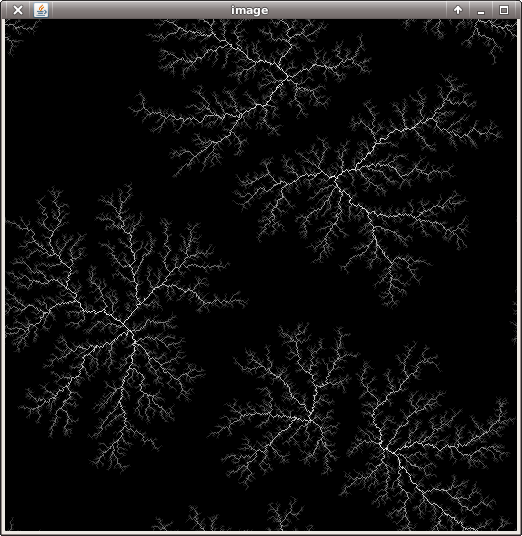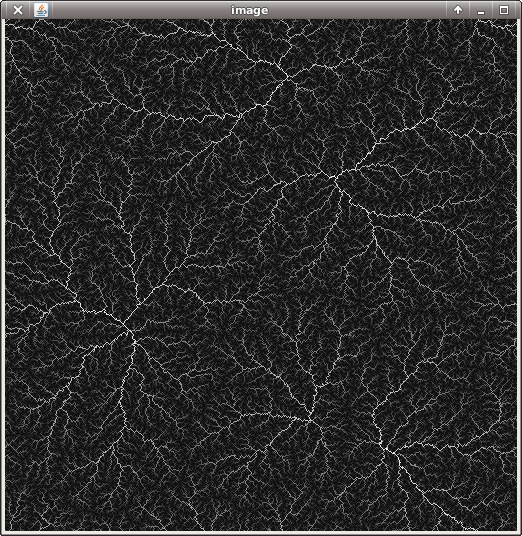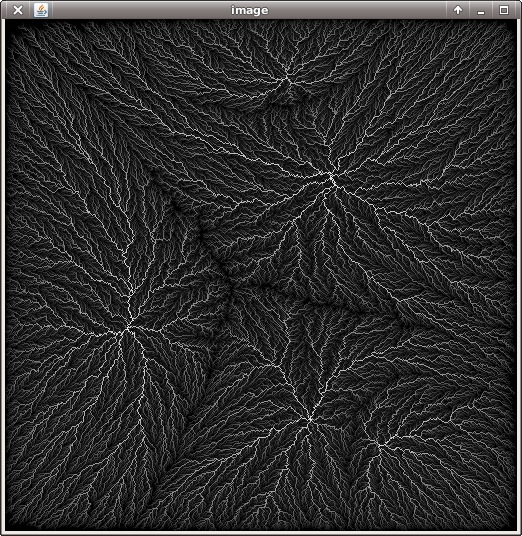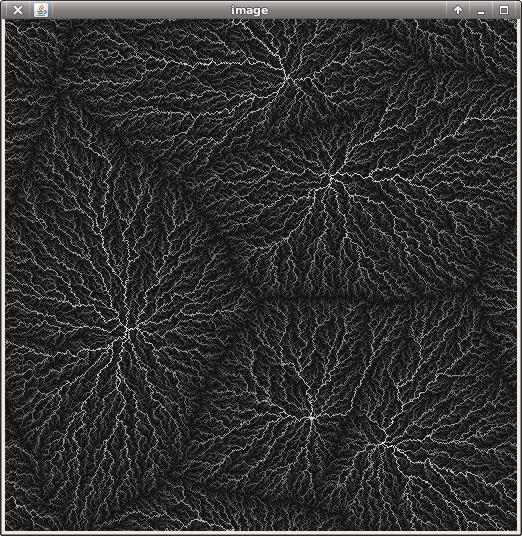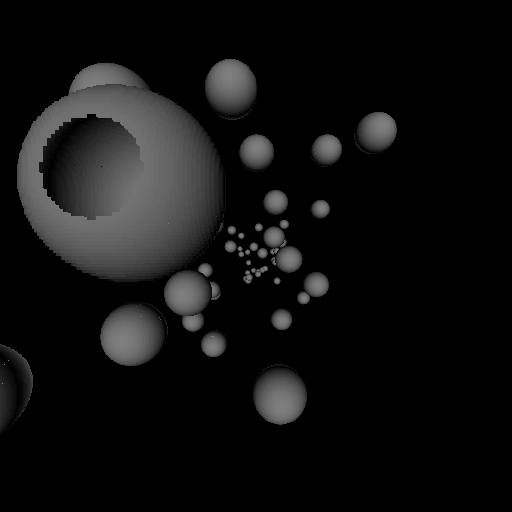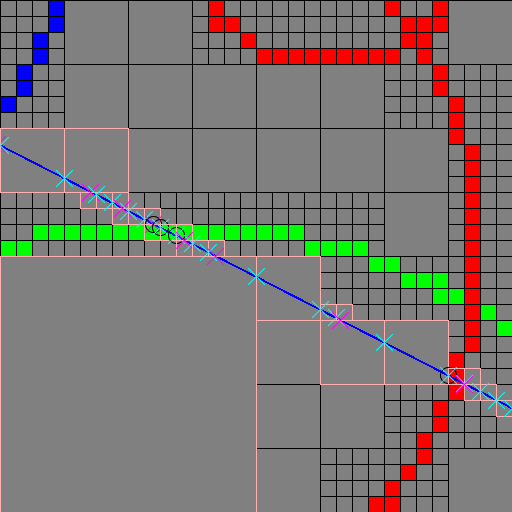About Me
Michael Zucchi
B.E. (Comp. Sys. Eng.)
also known as Zed
to his mates & enemies!
< notzed at gmail >
< fosstodon.org/@notzed >

The tech / enthusiast 'press' - if you're not paying, you're the product.
Just a short thought for the day - if you're not paying for it, you're not the customer but the product. So what does that make the tech and enthusiest 'press' - toms hardware, anandtech, ign, youtube, etc?
The tech and enthusiast press is just another big arm of the PR industry.
Unlike the ABC's charter, they do not exist to entertain and inform their readership; they're there to sell the products which provide the advertising dollars which pay for them to exist in the first place.
Their customers are the advertisers, not the readers.
I used to have some respect for technical articles on anandtech and the like but some recent technical articles lead me to drop this completely. These convinced me that they don't have the technical competency to write these articles in the first place which leads to the obvious conclusion that they were effectively written by the PR firms of the companies that make the products in question. And what's worse is that the trend toward access journalism means that they'll bend over backward (or is that forward) to accomondate PR agendas just to get that next exclusive.
I'm sure some would label such an idea a 'tin-foil hat conspiracy' but that in itself is a typical fud tactic used to silence such dissenting thoughts. It's such a fiendishly clever one too: first people are treated as idiots for believing such nonsense, and if the truth really does come out (such as with the recent youtube m$/ea payola indicents) they're just dismissed as idiots again because 'everybody knew that'.
Some keywords to help you navigate this minefield:
- 'exclusive'
-
Basically means the entire article is direct from the PR firm or may as well be. It will only follow set talking-points and wont be overly critical of the product.
Apparently attaching conditions to this type of article is a wide-spread industry practice which at best leads to selection bias. Sites which don't mind litterally prostituting themselves out in this way are going to get more money and crowd out any with ethics (in short, there's no room for ethics in publishing).
I'd rather just have the raw PR material so I can make up my own mind. At least you know where the PR starts and stops.
- 'preview'
-
Here the press has access to information before the general public. It is possible the preview is in a controlled environment and possibly not even hands-on, so even if there were no other influence the previewer may not be getting a complete and accurate picture of the product themselves.
When did you last see a scathing preview? They are just part of the PR path and should be treated as such; nothing wrong with being interested about it but they must be treated with a good dose of scepticism. Always.
- 'review'
-
In general the review copy will be supplied by the vendor: this already introduces a conflict of interest. But reviews may also impact the ability to secure exclusives or previews - which allows advertiser interest to go beyond the supposed chinese walls between the advertising and editorial sections of a reporting business.
Some sites even bizarrely take pride in having their reviewers use inconsistent scoring across all reviews which is utterly baffling. The job of the review editor should be there to ensure the score at the end of the article actually means something and isn't unduly affected by the tastes, biases, or bribes of the reviewer.
You definitely can't trust 'user' reviews: apart from widespread fraud there may be other mechanisms such as filtering screens on 'apps' which only direct positive reviewers to the rating mechanism (e.g. dungeonkeeper) or even use bribery of virtual junk to encourage distorted scores. And something about the immediacy of the mobile internet has created a 'great hysterical age' well beyond anything in previous human history: so you can't use popularity as any sort of reliable guide either.
This kind of sucks: it means you basically can't trust anything on the internet. There is no way to form an objective opinion when all of the information sources are poisoned. At best if you are an expert in the field you can form your own opinion but that will also be biased based on your own life experiences (although it probably doesn't matter). The layman has no hope.
I don't think the 'mainstream' press is any better tbh. Sure there are some journalistic ethics that might prevent the most egregious examples but papers either exist at the whim of their advertisers (their real customers) or to push the political agenda of the insanely rich (literal meaning) arsehole who owns it for that purpose. And the ethics only cover news reporting anyway which is only a part of any paper's content.
Motivation
Well, lack thereof.
I guess i'm on holidays but i've mostly been too lazy to even sit in the yard drinking cold beer on a hot day ... (it's kind of boring without something to do, and reading tends to put me to sleep).
I've been playing a good bit of Ni No Kuni over the last few days after buying it on PSN - some of it is a bit cringe inducing and childish but enough of it is quite charming to keep going. The hand-holding never seems to stop (yes snot-nose, I do know that i should cast such and such here, you don't need to step me through it every single time), the whole pure hearted help-everyone mend hearts stuff is a bit vomit inducing, and sometimes it seems there are just a few too many short battles every few seconds. But yeah you don't play jrpg's for the story. Technically it is excellent - short loading times (just 30 seconds to the main screen from xmb, 5 seconds to load a saved game), very pretty and clean graphics almost always a solid 25fps (only a bit of tearing sometimes when you're starting on the dragon). I haven't played a decent RPG since Rogue Galaxy and I keep forgetting Level 5 make much better games technically than square enix (the stories are usually a bit better too if only because you can work out what they are). The only final fantasy I really liked was 12 but the loading times for each tiny area sucked. I'm more of the lazy 'grind until the battle is winnable' type so I found FF-13 a pain since it was easy to get stuck with no way to back-track in order to build up capabilities. It doesn't help that you hate most of the characters. I actually don't mind Lightning - if i was in her situation I would hate all the wankers around me too and just focus on getting shit done (not sure she deserves her own dress-up game though, and seems completely out of character). I thought Vanille was a cutsy bit of fluff until I found out the back story of her coping with something bad in her past - and then I hated her with a passion. Reminds me of someone I knew once; pretty and fakely shallow but ultimately a complete fuck-up living in a detatched reality who would simply make shit up to try to please/impress those around her. I didn't get very far in 10 so maybe I should try again, although the loading times there suck even more. Given how much time they take as it is the loading just kills it.
I've been to the beach a couple of times on a weekend but although i always 'fully intend' to go during the week I never seem to get out of the house. Either too hot or too cold or too windy but really i'm just too lazy. Today? hmm naah.
Although i'm not a complete lazy arse. I finally built a shaded frame over some of the garden - a couple of months too late, 45 degrees in the shade is enough to do some real damage when there isn't any shade. The garden in general has been pretty dissapointing this year. Tomatoes should be nearly over by now but i'm only just getting fruit now from the most developed plants (well, I had one ripe fruit). And even then there hasn't been many bees around so lots of the flowers just aren't setting. I have some basil flowering now so that should help. I think I can count on one hand the number of chillies i've picked from last years plants - the ones I planted this year are about 5cm high after 3 months. I thought i'd be inundated with beans this year as I was last but even they aren't producing very well although a lot of that has been the heat. I've got two cucumbers so far and only one plant (of 3) looks like ever fruiting. I got a few sweet corn but I think i'm down to the last one and some I picked too late. It takes too much space and water to be worth it. No fruit set on the peach tree at all this year which was a bummer weather was wrong at that time of year.
And I somehow completely killed my mandarine tree ;-(. My best guess is a tiny bit of stray glyphosate killed it but i'm not sure how plausible it is for that to kill a whole tree - either that or something stressed it to death. Had nice juicy and tart fruit too. Maybe i'll drop in a valencia to replace it, or leave it bare for a while. I also killed the rosemary I had in a pot - I got sick of just keeping it alive watering it constantly and it was root-bound anyway so it always grew poorly. I had one come up by seed in another pot though so all is not lost (i had a couple come up in the paving too, for such a tough plant it seems easy to kill). About the only things doing any good has been the annual herbs so i've been using handfulls of mint/basil/lemon basil/parsely with pretty much every meal (particularly sandwiches, noodles/soups/pasta or curries). Sage is going well too.
It's been too hot to do much interesting cooking although I baked a cake a few days ago to try to use up some stewed apricots I froze when I had a tree (before that one died - about 5 years ago!). A bit heavy but passable. It's been too hot to brew beer. I did a couple of batches last month but due to the high temperature at the time they're not going to be beating any personal bests (sat around 28-30 most of the time which fucks up the flavour). Still, I might go put some in the fridge for something to do later today.
I haven't turned on my parallella for a few weeks. I thought I was going to get into the FFT hacking there for a bit before I went off on a tangent on the GA + OD stuff but I can't muster enthusiasm for any coding right now. Since i've been playing games a bit lately I also thought about some game stuff, dusk, or a shoot-em-up; but that's as far as that went. My laptop is a bit of a pain to code on because it needs more memory and the fan rumbles loudly sometimes (thinkpad fault) and the hand rest gets hot, so i'm keeping an eye out for a small (micro/mini itx?) machine with one of the just released HSA-capable APUs but there isn't much of them around here yet.
I guess I just need a break anyway so I shouldn't be too hard on myself. But I think being tired all the time from sleep apnoea has to be a contributing factor. And unfortunately there's not much you can do about it. Losing weight or just exercising is supposed to help but I had it even when i was a skinny-arsed cunt back in uni riding every day and it's hard to lose weight when the sleepiness fucks with your appetite and ability to exercise. Makes one a bit fumbly and accident prone at it's worst too. Even something purportedly relaxing such as sitting under a tree on a warm day drinking a cold beer and reading a book can become a bit of a struggle and ends up being not particularly enjoyable.
Is VR really a good idea?
It looks like the technology is just about there to create affordable and usable 'virtual reality' hardware for the general public: but as with many other technological advances one has to ask whether the technology is ahead of society's ability to cope.
TV is already a pretty good conversation killer and mobile phones have become little cones of isolation even when "socialising" with friends or family, so how will it play out if you're whole field of view (and hearing?) is encased in a helmet?
I can see a lot of agro from brothers and sisters fighting over the one head-mounted display that these things will only be able to support for the time being. And some angry mums when little Johnny or dear little Alice wont come out of his or her bedroom for dinner because he can't even hear the calls (and god knows what they're up to in there). And some pretty boring get togethers with mates around the TV getting sea-sick looking at a view from the one player's eyes.
Another more disturbing factor that will play into it is the continual fine tuning of the skinner box trade - games which are pretty much just poker machines / gambling devices for extracting money from the vulnerable. Since those are making such a fuck-ton of money at the moment they are only going to get worse. If people can already get lost in a tiny screen on a phone how will they cope when they're shut-off completely from the outside world? The scope for manipulation of vulnerable or susceptible people is enourmous. It's easy to blame people as being weak-minded but it's not entirely their fault: they are being manipulated without even knowing it, but intentionally by maniplators who know what they're doing.
Or propaganda / religious / idealogical indoctrination, both scurges of right-thinking citizens everywhere. Cut off from immediate self-correcting factors like someone telling you what a dickhead you are.
As an aside I wonder when hollywood became such an obvious propaganda front for the neocon/zionist agenda? One of the recent transformers movies was on the other night on TV and I couldn't get over just how blatantly propagandist it was at every level: an [unemployed] 'nerd' who saves the day, with a super-model girlfriend, with happy middle-class parents, with nothing but leisure to keep them occupied, government secret organisations [being a good thing, by] protecting the [whole] world from bad stuff [that usually happens in the middle east], to advanced alien race only wanting to deal with the USA [who are obviuosly the good guys], even to some [crazy] conspiracy nut not only being believed by everyone but also being incredibly wealthy. I guess we had some of that shit in the 80s and 90s but at least we had some stuff to counter it too (and a bit of fucking humour) and now it's just so overt it's bordering on sick. Although it's been an undercurrent for some time I suppose it was around the turn of the century it really took off so brazenly by taking advantage of public maleability at the time. And the really sick part is they get upset when people don't want to pay to be advertised at and brainwashed (or maybe the sick part is people want to go to the effort to get it in the first place). But I digress ...
Back to the VR stuff: potential health issues. Spending many hours staring at a screen with a fixed focal distance can't be good for your eyes. Modern lifestyles are already sedentry enough and the lack of external vision enforces this even further as you don't have a choice but to sit while doing it unless you live in a rubber room. And if socially retarded people (like me) can already get caught up in reading books or hacking code well into the next morning what's going to happen when you can't tell if it is night or even know where you are? I wonder how long until someone dies using one? Or loses their job/fails at school because they'd rather spend time outside of IRL, because lets face it, IRL pretty much sucks for most people at least some of the time. Although it's not like both of these don't already happen with existing technology.
And imagine not being able to skip adverts or mute them - or even look away from them? That's nightmare material.
There are some potentially interesting non-game uses that spring to mind which seem to contradict some of these points such as remote communication or stuff for mobility impaired (whether through age or disablement). And others such as training. But most of these will be short-term or irregular.
But overall i'm just not sure on the whole idea for entertainment itself. It could be totally bloody awesome or it could be the beggining of the end for western civilisation (civilisations never last forever ...). Ok probably not the latter but there are big issues beyond the technology capability itself and those explored by some laughably fantastical stories by Neal Stephenson.
It'll certainly be interesting for a while anyway - a new area of technlogy to explore. Don't get me wrong there are some really exciting possibilities for games and other uses that i'm looking forward to trying out one day. But in the end there may need to be mandatory breaks, minimum age restrictions, ambient input (e.g. external cameras or see-through screens/windows) or other tweaks just to protect people from themselves.
I guess we'll see in about a decade, assuming the experiments in the next few years become commercially successful.
The weirdness of mass-market economics, m$l vs psn.
So this is about the playstation network on PS3 vs the microsoft live(?) thing on xbox, xbox 360 for on-line games and other on-line services.
On paper it seems like a no-brainer: zero-cost on PSN for multi-player games and all of the internet based services the XMB provides vs a yearly subscription for microsoft multi-player games and all of the internet based services they provide (even those which already require a subscription?). Oh and the one you pay for is the one full of
fucking
adverti$ing???
M$ are totally nuts right - surely everyone would just go with PSN?
Funny that.
Except, once people start paying for stuff they just assume it's "better" (and i'm sure a bit of viral/illegal marketing helped that idea take hold as well) and will argue as such to their death. Apart from that once you pay for something the whole "you may as well use it" factor comes in: once paid for people will naturally want to use the paid for service rather than the free one, and network effects start to kick in and suddenly everyone is using the paid service for all multi-player games, despite their best interests taking second stage.
So it's kind of sad ... that the only way Sony could possibly counter this is by just charging for their service too - as they have with the PS4. Very few people will want to pay for both (and to be honest, you'd have to be a bit thick in the head if you did) and so it forces everyone to make a choice. This breaks up the advantage of the network effects and although some will stick to what they know and are already paying, the magic factor for one vendor is instantly evapourated. By being that insignificant bit cheaper and leaving some services free anyway (not to mention the games) Sony are instead creating a positive network-effect in their favour and thus under-cutting years of effort by M$. (Apart from in the case of the PS4 vs xbone actually creating a games machine and not a gimped water-cooler/us-only-tv/football thing).
"master-stroke"?
Still, it's kinda dumb that the only way to fight a paid service is to charge as well and free just can't compete. Somewhat fucked, more than just dumb.
On a side note I did start with PS+ a few months ago myself but it was just for the games - I have zero interest in online mutli-player and don't have a PS4 anyway (SotC+Ico-HD pushed me over, although TBH I couldn't get into the former and forgot how to play the latter - even though i've previously finished it on a borrowed copy). I stopped buying games about 18-24 months ago so there's been a constant stream of good games that I never played that I thought I might one day. Many are ones I wont ever like or bother with but there's enough to keep me going for a few years already at the rate I play (and some I never even saw in the shops here at the time and certainly cannot be found there now).
Paying for this type of subscription service pretty much goes against every free software (and otherwise) bone in my body ... but for me it's not even an hours labour and less than 2 cartons of piss and in Australia it's substantially less than a single full-priced game so from a personal perspective it's pretty much insignificant. When my utility bills and rates are hitting around $8K/PA these days it somewhat changes how you think of anything under a grand (fortunately I have no mortgage, ooo-yeah!). Although with a small garden, good freezer, and a bit of smart shopping decent food is still cheap as shit here in Australia so those high costs aren't as bad as they sound - although it was a bit of a one-off, i'm currently going through a second vac-pac whole rump that only cost about $4/kg (~$2/lb). It's no $30/kg steak but it's great for curries and stir-fry (and the cat) and i don't mind having to use my teeth occasionally anyway.
The main (rather big) downside is that I can't share the games with friends.
I guess i'll see if they end up adding adverts. That is my new bug-bear at the moment: pretty much all investment today is based on something as stupid and non-producing as advertising dollars. I can deal with a certain amount but it's so overbearing now that it makes viewing the web or watching TV, well, unbearable. Google, i'm looking at you.
Voxel heightmap, dla
I've been mucking about a bit with the voxel stuff some more, trying some terrain generation. I first cooked up something from memory but it wasn't correct, tried perlin noise but wasn't really happy with it and then I came across this post about terrain generation using Diffusion Limited Aggregation (DLA) to generate mountain ranges.
Partial solution.
And the final result of the basic DLA. This version is cyclic.
The basic algorithm is very simple:
Node[] nodes; // grid of nodes
int[] map; // grid of points
randomly seed Ns locations in nodes
total = Ns;
// until all locations are visited
while total < width*height
x = random(width);
y = random(height);
if (nodes[x,y] != null)
continue;
fi
// randomly walk until something is hit
while !hit
// save location we came from
lx = x;
ly = y;
// walk to next location
(x,y) = randomly move by 1 cell in a compass direction
if (cyclic)
x = x & (width-1);
y = y & (height-1);
else if (out of range)
break;
fi
// check for attachment point
n = nodes[x,y]
if (n != null)
hit = true;
total += 1;
n = new node(n, lx, ly);
nodes[lx,ly] = n;
n.visit(map);
fi
wend
wend
Where:
Node {
Node parent;
int x, y;
void visit(int[] map) {
map[x,y] += 1;
if (parent != null)
parent.visit(map);
}
}
I'm then showing log(map).
It certainly has some nice 'erosion' like shapes, and can also make some nice lightning. I also experimented with something based on physical erosion but that didn't really pan out.
This algorithm grows the seed points like a crystal and because the search space is quite big is rather slow to get going on larger images. Although it really races to the end (the first image above was about 15 seconds in, the second was 2 seconds later). I tried a few variations to speed this up:
- Using random line segments
-
This is much much faster but the result has fewer "fiddly bits" and is more strung out.
- Randomly choosing an existing node from which to grow a new point
-
This is faster at the start but slows down as it starts to randomly choose nodes which have no where to go. It also produces a more regular shape more akin to mould growth; which is not really very mountainous.
It might be possible to play with how it chooses the growth points with this one, both to speed it up and tune the shapes it generates. I've experimented a little bit but didn't have much luck so far.
Unfortnately the pixel-scale of everything is a bit too detailed so I need a way to scale it up without losing the intricacies. I haven't tried the accumulation of multiple blur radii from the link above yet. That should be able to upscale at the same time too.
But yeah, right now it just isn't grabbing me enough to really get into it - but then again nothing is atm. Blah.
Voxels
Just playing around with a 3d implementation of the ray casting in the previous post.
Fly-through video here. All spheres have a radius of 30 voxels.
I'm just using the abs(normal.z) as the pixel value and a very simple projection. This is a double version and there are some rounding/stepping errors present. I changed the maths slightly so that the stepping is parametric rather than on x/y/z which simplifies the code somewhat.
It's pretty slow on my laptop, about 1 frame/s, although it doesn't really matter how deep the volume is - this one is 4096x512x512. Not that it's optimised in any way mind you.
At some point I do intend to see how it would run on epiphany ... but right now i'm too lazy! The main bottleneck will be the tree traversal for each ray although I think in practice quite a lot of that can be cached which would be a big speed-up. Other than that it could be a good fit for the epiphany given how small the code is and that only a single data strucutre needs to be traversed.
TBH i'm not sure if it's ever going to be practical for anything because of the memory requirements even if it can be made to run fast enough. *shrug*
Bresenham(ish) line, skipping, raycasting.
Haven't been up to much lately - just trying to have some holidays. I have been tentatively poking at some ideas for raycasting. Not that I have any particular idea in mind but it might be something to try on the parallella.
Part of that is to step through the cells looking for ray hits, which is where bresenham's line drawing algorithm comes in. I'm working toward a heirarchical data structure with wider branching than a typical quad/oct tree and so because of that I need to be able to step in arbitrary amounts and not just per-cell. Fairly cheaply.
I don't really like the description on wikipedia and although there are other explanations I ended up deriving the maths myself which allows me to handle arbitrary steps. Unfortunately this does need a division but I can't see how that can be avoided in the general case.
If one takes a simple expression for a line:
y = mx + c
m = dy / dx
= (y1 - y0) / (x1 - x0)
And implements it directly using real arithmetic assuming x increments by a fixed amount:
dx = x1-x0;
dy = y1-y0;
for (x=0; x<dx; x+=step) {
x = x0 + x;
y = round((real)x * dy / dx) + y0;
plot(x, y);
}
Since it steps incrementally the multiply/division can be replaced by addition:
incy = (real)step * dy / dx;
ry = 0;
for (x=0; x<dx; x+=step) {
x = x0 + x;
y = round(ry) + y0;
plot(x, y);
ry += incy;
}
But ... floating point aren't 'real' numbers they are just approximations, so this leads to rounding errors not to mention the rounding and type conversions needed.
Converting the equation to using rational numbers solves this problem.
a = dy * step / dx; // whole part of dy / dx
b = dy * step - a * dx; // remainder
ry = 0; // whole part of y
fy = 0; // fractional part of y
for (x=0; x<dx; x+=step) {
x = x0 + x;
y = ry + y0;
plot(x, y);
ry += a; // increment by whole part
fy += b; // tally remainder
if (fy > dx) { // is it a whole fraction yet?
fy -= dx; // carry it over to the whole part
ry += 1;
}
}
Where y = ry + fy / dx (whole part plus fractional part).
For rendering into the centre of pixels one shifts everything by dx/2 but this cannot be accurately represented using integers. So instead the upper test on the fractional overflow is shifted by dx/2 by multiplying both sides by 2 which leads to:;
if (fy * 2 > dx) {
fy -= dx;
ry += 1;
}
This suits my requirements because step can be changed at any point during the algorithm (together with a newly calculated a and b) to step over any arbitrary number of locations. It only needs one division per step size.
The black outline is calculated using floating point/rounded, and the filled-colour dots are calculated using the final algorithm. The green are calculated by stepping 8 pixels at a time and the blue are calculated by starting at each green location with the same (y = ry + fy/dx) and running the equation with single stepping values for 3 pixels.
(i did this kinda shit on amiga coding 20 years ago; it's just been so long and outside of what i normally hack on that i always need to do a refresher when I revisit things like this).
Unfortunately for raycasting things are a bit more involved so I will have to see whether I can be bothered getting any further than this.
Update: So yeah after all that I realised it isn't much use for raycasting anyway since you start with floats from the view transform - converting this to integer coordinates will already be an approximation. And since hardware float multiply is just as fast as float add may as well just use the first equation with floats and pre-calculate dy/dx so any rounding errors will be consistent and not accumulate.
So here's a plot of a 2d ray through a 16-way (4x4) tree. Cyan X is when it hits a vertical cell wall, purple X is when it hits a horizontal cell wall, and black circle is when it hits a non-transparent leaf cell. The black boxes are the nodes and leaf elements in the tree, and the pink boxes are those which are touched by the ray. I just filled the tree with some random circles.
The code turned out to be pretty simple and consists of just two steps:
First the location is converted to an integer (using truncation) and that is used to lookup into the tree. Because each level of the tree is 4x4, 2 bits are used for both x and y at each level so the lookup at each level is a simple bit shift and mask. If the given cell is in a non-transparent leaf node it is a hit.
Then it calculates the amount it has to step in X to get beyond the current cell bounds: this will simply be MIN(cell.x + cell.width - loc.x, (cell.y + cell.height - loc.y) * slopex). The cell size is calculated implicitly based on the node depth.
The 2d case isn't all that interesting to me but it's easier to visualise/test.
Hmm, on the other hand this still has some pesky edge cases and rounding issues to deal with so perhaps an integer approach is still useful.
GT6 is the best yet (so far)
I bought a few games recently but have been too lazy to even start them up, but one of them was gran turismo 6 that I just had a go with tonight.
So far for me it seems like the best gran turismo yet - and i haven't really liked any since 3 (my first one). GT4 was just confusing, and GT5 just wasn't very fun - that's not even counting the weird menus and loading times. I think with that one polyphony might've forgotten they were making a game for the general public and not just themselves.
The graphics aren't really any different to 5 (not a bad thing) but I really don't understand why polyphony keep insisting on upping the resolution - the hardware just can't do 1080 pees at that frame rate and the tearing they resort to is simply unforgivable (haven't heard of triple buffering??). I force my display to 720p which makes it go away for the most part and the lack of tearing more than makes up for any loss of resolution which is barely noticable from the couch anyway. The blocky/shimmering dynamic shadows are also a bit more than the hardware can deal with but the dynamic time and weather it enables makes it an acceptable trade-off. I only drive using the bonnet-cam so I couldn't care less about the internal car modelling and TBH GT3's cars looked good enough from the arse-end which is the only thing you can see when racing. I don't really mind GT's sound engine or even music for the most part either.
The menus are mostly better apart from the tuning screen with it's expanding tabs although most of the other menus are a lot better. Much quicker too and global short-cuts let you change or re-tune your car anywhere rather than having that shithouse partitioned garage from GT5 (where standard cars are segregated). A weird niggle is that it doesn't remember some of the driving options when you change cars. Collisions are still modelled on a plastic canoe but I suppose that's better than just ending the race in a shower of broken glass and burning rubber that a true simulation would demand, or god-forbid adding some "sands of time" to rewind.
The introduction to the game (first few races, not the movie) is more gentle and the annoying license tests are a lot easier and fewer in number. Having the racing line from your friends pop up is also a nice touch - "asynchonous online" could work very well for this game and I think could well be the killer-app for Drive Club if it can reach a critical mass. The economy seems to be more newbie friendly too - GT5 had me re-running shit-box races over and over just to be able to afford a couple of upgrades to beat the next shit-box race. So far i've only re-run races to get a better time, and for the first few races it only takes one or two tries and by then I had enough credits to upgrade a bonus car to finish all of the novice class races easily. A couple of the current seasonal events give out nice cars for little effort too which is more than enough to get established but even the shit-boxes have a bit more get up and go which makes the early races less of a chore. Apparently it has micro-transactions although I haven't seen where.
I guess the most important part - the driving - just feels way more "fun". I think the tyres just feel a bit grippier and don't overheat as much or for as long. It seems more possible to recover from a loss of traction rather than just turning into an uncontrollable slide/spin. And you can finally roll cars - no more weird elastic which keeps the car from flipping over. I think they toned down the slipperiness of the non-road surfaces for the beginner cars and maybe they tweaked the learning curve a bit to make these more enjoyable to drive. I know it's supposed to be a simulator but it definitely is a game first.
Despite the number it feels like a more rounded game than any of the recent ones and would be the best entry point to the series i've tried. It doesn't take the 'simulator' sub-title so seriously that it ruins the game part of the game.
And yeah ... Bathurst ... at night.
Update: Been putting in a few hours every few nights lately. Yeah the economy is way better than GT5, I somehow ended up with 1Mcr from some 90 second time trial in the seasonal thing. So much less (actually none) grinding needed compared to GT5 - thank fuck for that.
Some of the tracks suck a bit, but that's just the track. e.g. silverstone or the indy track; too flat and the actual track doesn't always follow the marked lines on the road so you have to follow the map otherwise you run off (pain on a time trial if you're not familiar with the track since a run-off == disqualify). And the tracks being so sucky put you off wanting to learn them. OTOH some of the tracks are pretty good. I did a lot of grinding in GT5 on Rome with the 4x4 seasonal truck race and so that's become a bit of a favourite, I always liked Trail Mountain (that straight up the tunnel), and there's really nothing at all like Bathurst at dawn or dusk. During the race there's some weird dithering on trees and on replays you notice how they are low-depth sprites but given they fit the whole forest on there it's pretty forgivable. At least the gum trees actually look like gum trees too - which is pretty rare in racing games given how distinctly different they appear to other trees and the milky way at night is pretty impressive from the southern hemisphere. It's a pity they don't have the original layout before they added the dog-leg at the bottom of conrod straight, but I guess 'licensing' wouldn't allow that. The Matahorn is also quite a bit of fun in a light nimble car although it's pretty easy to over-cook it on the down-hill bits.
One annoying thing is that it only runs in NTSC timing - no 50hz output on HDMI. This is pretty sucky because those extra 4ms would help with the screen tearing a great deal and I just don't see why we need to be subjected to some legacy timing from an ancient american video standard. I know i'm probably going against the grain from 'gamers' who think otherwise but they are just ignorant and ill-informed.
Hopefully the seasonal events start including races - time trials are pretty boring and it's starts to become 'not a game' when one simple mistake requires a whole lap to fix. Although at least for the car prizes you only need to do a single clean lap - regardless of the time - to win the cars. If it was the first GT ever I could understand all the time trails to some extent - it's a bit of a training exercise to be able to drive properly - but it's no.6 (+ all the prethings) in the series.
I was pretty surprised to see how Forza on the xbone uses PS2 era rendering techniques - fixed shadows (actually even worse, all shadows project directly down from the videos i've seen), fixed time of day, no weather, really basic textures and 2D crowds (oh dear). Because the views in car games are quite predictable they are always able to push better-than-average graphics at high frame-rates and the car models are getting so detailed they seem to be at a point of diminishing returns. But I think there's an awful lot left for future games; GT already has weather and dynamic shadows, driveclub improves on the shadows, adds 3D trees and volumetric clouds. Future games could add procedurally created seasons or even dynamically created landscapes that grow and age. Better water modelling (puddles, flowing water, and not just 'wet'). Not to mention VR stuff. I think the car models are good enough (more than good enough TBH), but there's still enough possibilities that no amount of FLOPS will ever exhaust them.
Copyright (C) 2019 Michael Zucchi, All Rights Reserved.
Powered by gcc & me!

